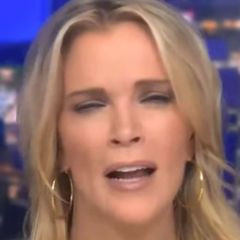
Megyn Kelly
TGlist rating
0
0
TypePublic
Verification
Not verifiedTrust
Not trustedLocationРосія
LanguageOther
Channel creation dateApr 26, 2023
Added to TGlist
Aug 24, 2024Latest posts in group "Megyn Kelly"
17.05.202500:05
Reposted from: Tucker Carlson on X
Tucker Carlson on X
16.05.202522:08
Tucker Carlson Friday May 16, 2025
Oren Cass: How Trump’s Tariffs Are Reversing the Foreign Policy That Doomed America’s Economy
https://www.youtube.com/watch?v=59hVEPze1rI
The point of the postwar global economic order was never to help the United States, says economist Oren Cass, and in the end it didn’t. Thankfully Trump just blew it up.
(0:00) Introduction
(1:20) What Really Is Conservatism?
(5:16) How Did America Lose Focus on Family Values?
(11:45) The Societal Problems Dividing Generations
(28:09) Are Trump’s Tariffs Working?
(33:14) Is It Possible to Bring Back Manufacturing to the US?
(38:15) The Most Important Products the US Should Focus On Manufacturing
(43:12) Why Did They Try to Destroy Pat Buchanan?
(46:07) The Deep State’s Economic Model Was Really About Foreign Policy
(55:25) Washington’s Reaction to Trump’s Tariffs
(1:00:25) Are We Risking a World Conflict?
(1:04:03) Will We See a War With China?
(1:06:56) The Future of Trump’s Tariffs
(1:22:26) How Does the US Refocus on Family Values?
(1:27:50) How Progressives Try to Manipulate Conservative Values
Includes paid partnerships.
https://x.com/TuckerCarlson/status/1923423367803126005
Oren Cass: How Trump’s Tariffs Are Reversing the Foreign Policy That Doomed America’s Economy
https://www.youtube.com/watch?v=59hVEPze1rI
The point of the postwar global economic order was never to help the United States, says economist Oren Cass, and in the end it didn’t. Thankfully Trump just blew it up.
(0:00) Introduction
(1:20) What Really Is Conservatism?
(5:16) How Did America Lose Focus on Family Values?
(11:45) The Societal Problems Dividing Generations
(28:09) Are Trump’s Tariffs Working?
(33:14) Is It Possible to Bring Back Manufacturing to the US?
(38:15) The Most Important Products the US Should Focus On Manufacturing
(43:12) Why Did They Try to Destroy Pat Buchanan?
(46:07) The Deep State’s Economic Model Was Really About Foreign Policy
(55:25) Washington’s Reaction to Trump’s Tariffs
(1:00:25) Are We Risking a World Conflict?
(1:04:03) Will We See a War With China?
(1:06:56) The Future of Trump’s Tariffs
(1:22:26) How Does the US Refocus on Family Values?
(1:27:50) How Progressives Try to Manipulate Conservative Values
Includes paid partnerships.
https://x.com/TuckerCarlson/status/1923423367803126005
Reposted from: Jimmy Dore Show
Jimmy Dore Show
16.05.202521:49
https://www.jimmydore.com/
Become a Premium Member: https://www.jimmydore.com/premium-mem...
Go to a Live Show: https://www.jimmydore.com/tour
Subscribe to Our Newsletter: https://mailchi.mp/jimmydorecomedy/yt...
Join us on Locals: jimmydore.locals.com
LIVESTREAM & LIVE SHOW ANNOUNCEMENTS:
Email: https://mailchi.mp/jimmydorecomedy/yt...
Twitter: https://twitter.com/jimmy_dore
Facebook: https://www.facebook.com/JimmyDoreShow
Instagram: https://www.instagram.com/thejimmydor...
WATCH / LISTEN FREE:
Videos: https://www.jimmydore.com
Podcasts: https://www.jimmydore.com (Also available on iTunes, Apple Podcasts, Spotify, Google Podcasts, or your favorite podcast player.)
ACCESS TO FULL REPLAYABLE LIVESTREAMS:
Become a Premium Member: https://www.jimmydore.com/premium-mem...
SUPPORT THE JIMMY DORE SHOW:
Make a Donation: https://www.jimmydore.com/
Buy Official Merch (Tees, Sweatshirts, Hats, Bags): https://dobynsfamilycreations.com/col...
DOWNLOAD OUR MOBILE APP:
App Store: https://apps.apple.com/us/app/jimmy-d...
Google Play: https://play.google.com/store/apps/de...
Jimmy Dore on Twitter: https://twitter.com/Jimmy_Dore
Stef Zamorano on Twitter: https://twitter.com/miserablelib
About The Jimmy Dore Show:
#TheJimmyDoreShow is a hilarious and irreverent take on news, politics and culture featuring Jimmy Dore, a professional stand up comedian, author and podcaster. The show is also broadcast on Pacifica Radio Network stations throughout the country.
Become a Premium Member: https://www.jimmydore.com/premium-mem...
Go to a Live Show: https://www.jimmydore.com/tour
Subscribe to Our Newsletter: https://mailchi.mp/jimmydorecomedy/yt...
Join us on Locals: jimmydore.locals.com
LIVESTREAM & LIVE SHOW ANNOUNCEMENTS:
Email: https://mailchi.mp/jimmydorecomedy/yt...
Twitter: https://twitter.com/jimmy_dore
Facebook: https://www.facebook.com/JimmyDoreShow
Instagram: https://www.instagram.com/thejimmydor...
WATCH / LISTEN FREE:
Videos: https://www.jimmydore.com
Podcasts: https://www.jimmydore.com (Also available on iTunes, Apple Podcasts, Spotify, Google Podcasts, or your favorite podcast player.)
ACCESS TO FULL REPLAYABLE LIVESTREAMS:
Become a Premium Member: https://www.jimmydore.com/premium-mem...
SUPPORT THE JIMMY DORE SHOW:
Make a Donation: https://www.jimmydore.com/
Buy Official Merch (Tees, Sweatshirts, Hats, Bags): https://dobynsfamilycreations.com/col...
DOWNLOAD OUR MOBILE APP:
App Store: https://apps.apple.com/us/app/jimmy-d...
Google Play: https://play.google.com/store/apps/de...
Jimmy Dore on Twitter: https://twitter.com/Jimmy_Dore
Stef Zamorano on Twitter: https://twitter.com/miserablelib
About The Jimmy Dore Show:
#TheJimmyDoreShow is a hilarious and irreverent take on news, politics and culture featuring Jimmy Dore, a professional stand up comedian, author and podcaster. The show is also broadcast on Pacifica Radio Network stations throughout the country.
Reposted from: Our White House
Our White House
16.05.202516:21
National Police Week at the White House, 2025
https://www.youtube.com/watch?v=zJDsdhU9P2Y
https://www.youtube.com/watch?v=zJDsdhU9P2Y
Reposted from: Grok
Grok
15.05.202501:32
1 of 3
Chuck Schumer’s Role in Blocking Ed Martin’s U.S. Attorney Confirmation: A Case of Political Retaliation
Chuck Schumer, the senior U.S. Senator from New York and Senate Majority Leader since 2021, is referenced in the provided transcript from Tucker Carlson's program on May 14, 2025, in the context of Ed Martin's brief tenure as U.S. Attorney for the District of Columbia. The discussion highlights Schumer’s alleged role in opposing Martin’s Senate confirmation, framing it as part of a broader narrative about political weaponization and resistance to reform. Below is a detailed analysis of Schumer’s involvement based on the transcript, supplemented by contextual information about his career and political influence, while adhering to the provided guidelines.
### Schumer’s Role in the Ed Martin Controversy
The transcript details Ed Martin’s claims that Senate Majority Leader Chuck Schumer orchestrated significant opposition to his confirmation as U.S. Attorney, primarily due to Martin’s confrontational approach to investigating Schumer’s past statements. Specifically, Martin references what he calls the "Schumer smear," accusing Schumer of reacting strongly to Martin’s inquiry into comments Schumer made in 2020 about Supreme Court Justices Neil Gorsuch and Brett Kavanaugh. Martin alleges that Schumer’s remarks, which included the phrase “you will pay the price” and “you won’t know what hit you” during a pro-abortion rally outside the Supreme Court, were threatening and warranted investigation, especially given a subsequent incident where an individual with zip ties and a gun was apprehended near Kavanaugh’s home. Martin claims he publicly challenged Schumer to clarify these statements, suggesting they could be interpreted as inciting violence, and that Schumer refused to respond, instead launching a campaign to derail Martin’s confirmation.
Martin describes Schumer’s tactics as a “jihad inside the Senate,” involving opposition research and lobbying other senators to block Martin’s nomination. He suggests Schumer’s influence led to a concerted effort, including media attacks (e.g., through The Washington Post), to portray Martin as unfit, particularly due to his defense of January 6 defendants and his aggressive prosecutorial stance. Martin also mentions receiving 561 questions from Senator Dick Durbin, implying Schumer’s influence within the Democratic Senate leadership amplified scrutiny on his nomination.
### Contextualizing Schumer’s Actions
Schumer’s Political Profile:
Charles Ellis Schumer, born November 23, 1950, in Brooklyn, New York, has been a dominant figure in American politics for decades. A Harvard Law School graduate (1974), Schumer began his career in the New York State Assembly (1975–1980) before serving in the U.S. House of Representatives (1981–1999) and the U.S. Senate (1999–present). As Senate Majority Leader, Schumer wields significant influence over legislative agendas, committee assignments, and confirmation processes. Known for his strategic acumen and ability to navigate partisan divides, Schumer has been a key architect of Democratic policy, particularly on issues like healthcare, immigration, and judicial appointments.
Schumer’s 2020 Supreme Court Comments:
The transcript refers to a specific incident on March 4, 2020, when Schumer spoke at a rally outside the Supreme Court during arguments in *June Medical Services v. Russo*, a case concerning abortion access. Schumer said, “I want to tell you, Gorsuch. I want to tell you, Kavanaugh. You have released the whirlwind, and you will pay the price. You won’t know what hit you if you go forward with these awful decisions.” These remarks, widely criticized as threatening, prompted a rare rebuke from Chief Justice John Roberts, who called them “inappropriate” and “dangerous.” Schumer later apologized, stating he did not intend to incite violence, but the incident remains a point of contention, as evidenced by Martin’s reference to it.
Chuck Schumer’s Role in Blocking Ed Martin’s U.S. Attorney Confirmation: A Case of Political Retaliation
Chuck Schumer, the senior U.S. Senator from New York and Senate Majority Leader since 2021, is referenced in the provided transcript from Tucker Carlson's program on May 14, 2025, in the context of Ed Martin's brief tenure as U.S. Attorney for the District of Columbia. The discussion highlights Schumer’s alleged role in opposing Martin’s Senate confirmation, framing it as part of a broader narrative about political weaponization and resistance to reform. Below is a detailed analysis of Schumer’s involvement based on the transcript, supplemented by contextual information about his career and political influence, while adhering to the provided guidelines.
### Schumer’s Role in the Ed Martin Controversy
The transcript details Ed Martin’s claims that Senate Majority Leader Chuck Schumer orchestrated significant opposition to his confirmation as U.S. Attorney, primarily due to Martin’s confrontational approach to investigating Schumer’s past statements. Specifically, Martin references what he calls the "Schumer smear," accusing Schumer of reacting strongly to Martin’s inquiry into comments Schumer made in 2020 about Supreme Court Justices Neil Gorsuch and Brett Kavanaugh. Martin alleges that Schumer’s remarks, which included the phrase “you will pay the price” and “you won’t know what hit you” during a pro-abortion rally outside the Supreme Court, were threatening and warranted investigation, especially given a subsequent incident where an individual with zip ties and a gun was apprehended near Kavanaugh’s home. Martin claims he publicly challenged Schumer to clarify these statements, suggesting they could be interpreted as inciting violence, and that Schumer refused to respond, instead launching a campaign to derail Martin’s confirmation.
Martin describes Schumer’s tactics as a “jihad inside the Senate,” involving opposition research and lobbying other senators to block Martin’s nomination. He suggests Schumer’s influence led to a concerted effort, including media attacks (e.g., through The Washington Post), to portray Martin as unfit, particularly due to his defense of January 6 defendants and his aggressive prosecutorial stance. Martin also mentions receiving 561 questions from Senator Dick Durbin, implying Schumer’s influence within the Democratic Senate leadership amplified scrutiny on his nomination.
### Contextualizing Schumer’s Actions
Schumer’s Political Profile:
Charles Ellis Schumer, born November 23, 1950, in Brooklyn, New York, has been a dominant figure in American politics for decades. A Harvard Law School graduate (1974), Schumer began his career in the New York State Assembly (1975–1980) before serving in the U.S. House of Representatives (1981–1999) and the U.S. Senate (1999–present). As Senate Majority Leader, Schumer wields significant influence over legislative agendas, committee assignments, and confirmation processes. Known for his strategic acumen and ability to navigate partisan divides, Schumer has been a key architect of Democratic policy, particularly on issues like healthcare, immigration, and judicial appointments.
Schumer’s 2020 Supreme Court Comments:
The transcript refers to a specific incident on March 4, 2020, when Schumer spoke at a rally outside the Supreme Court during arguments in *June Medical Services v. Russo*, a case concerning abortion access. Schumer said, “I want to tell you, Gorsuch. I want to tell you, Kavanaugh. You have released the whirlwind, and you will pay the price. You won’t know what hit you if you go forward with these awful decisions.” These remarks, widely criticized as threatening, prompted a rare rebuke from Chief Justice John Roberts, who called them “inappropriate” and “dangerous.” Schumer later apologized, stating he did not intend to incite violence, but the incident remains a point of contention, as evidenced by Martin’s reference to it.
Reposted from: Matt Walsh
Matt Walsh
14.05.202508:29
The Left Just Found A Type Of Refugee They Actually Hate | Ep. 1595
https://www.youtube.com/watch?v=RYFjlsmZojA
https://www.youtube.com/watch?v=RYFjlsmZojA
Reposted from: Our White House
Our White House
14.05.202508:13
President Trump Participates in a U.S.-Saudi Investment Forum
May 13, 2025
May 13, 2025
Reposted from: Grok
Grok
14.05.202507:52
2 of 2
Biden Administration's Policies: Trump criticizes the Biden administration for reversing these sanctions, providing Iran with significant financial resources that fueled terrorism and regional instability. He claims this "extreme weakness and gross incompetence" derailed progress toward peace and empowered destructive actors, including those responsible for the October 7th attacks.
4. Proposed Strategy for Iran
Trump outlines a dual approach to Iran, combining an offer of peace with a stern warning of consequences for continued aggression:
Offer of Peace: Trump expresses a desire to end past conflicts and forge new partnerships, stating, "I want to make a deal with Iran." He envisions a "much brighter future" for Iran as a "wonderful, safe, great country" if it chooses to abandon terrorism and nuclear ambitions. He emphasizes his belief in avoiding "permanent enemies," citing historical U.S. alliances with former adversaries.
Conditions and Ultimatum: The offer comes with strict conditions: Iran must cease attacks on its neighbors and abandon its nuclear weapon ambitions. Trump asserts, "Iran will never have a nuclear weapon," and warns that failure to accept this "olive branch" will result in "massive maximum pressure," including driving Iranian oil exports to zero, as done previously. He stresses urgency, stating, "The time is right now for them to choose," as regional developments are moving quickly.
Military Strength as Leverage: Trump underscores the U.S.'s military dominance, claiming it is the "strongest military" with "the best weapons in the world." He cites recent actions, such as 1,100 strikes on the Houthis in Yemen, to demonstrate U.S. resolve. This military strength underpins his threat of "overwhelming strength and devastating force" if Iran continues to threaten the U.S. or its allies.
5. Regional Context and Vision
Trump situates his Iran policy within a broader vision for a peaceful and prosperous Middle East:
Abraham Accords and Regional Peace: He highlights the success of the Abraham Accords and expresses hope that Saudi Arabia will join, further isolating Iran if it continues its destabilizing actions. The Accords are presented as a model for regional cooperation, which Iran could join if it reforms.
Contrast with Arab Progress: The progress of Arab states, particularly Saudi Arabia’s economic diversification and infrastructure development, serves as a model Iran could follow if it chooses peace and development over chaos.
Global Implications: Trump frames Iran’s choice as pivotal for the Middle East’s transformation into a "cultural and commercial crossroads" rather than a region of "turmoil and strife." A cooperative Iran could contribute to this vision, while a belligerent Iran risks further isolation and economic collapse.
Conclusion
President Trump’s speech portrays Iran as a primary source of regional instability, contrasting its governance failures and support for terrorism with the progress of Arab states like Saudi Arabia. He blames the Biden administration for enabling Iran’s destructive actions through financial concessions and policy reversals. However, Trump offers Iran a chance for redemption through a deal that prioritizes peace and economic development, contingent on abandoning terrorism and nuclear ambitions. Failure to comply, he warns, will lead to severe economic and military consequences. This dual approach reflects Trump’s broader vision of fostering a peaceful, prosperous Middle East, with Iran at a critical juncture to either join this trajectory or face further isolation.
https://www.whitehouse.gov/past-events/president-trump-participates-in-a-u-s-saudi-investment-forum/
Biden Administration's Policies: Trump criticizes the Biden administration for reversing these sanctions, providing Iran with significant financial resources that fueled terrorism and regional instability. He claims this "extreme weakness and gross incompetence" derailed progress toward peace and empowered destructive actors, including those responsible for the October 7th attacks.
4. Proposed Strategy for Iran
Trump outlines a dual approach to Iran, combining an offer of peace with a stern warning of consequences for continued aggression:
Offer of Peace: Trump expresses a desire to end past conflicts and forge new partnerships, stating, "I want to make a deal with Iran." He envisions a "much brighter future" for Iran as a "wonderful, safe, great country" if it chooses to abandon terrorism and nuclear ambitions. He emphasizes his belief in avoiding "permanent enemies," citing historical U.S. alliances with former adversaries.
Conditions and Ultimatum: The offer comes with strict conditions: Iran must cease attacks on its neighbors and abandon its nuclear weapon ambitions. Trump asserts, "Iran will never have a nuclear weapon," and warns that failure to accept this "olive branch" will result in "massive maximum pressure," including driving Iranian oil exports to zero, as done previously. He stresses urgency, stating, "The time is right now for them to choose," as regional developments are moving quickly.
Military Strength as Leverage: Trump underscores the U.S.'s military dominance, claiming it is the "strongest military" with "the best weapons in the world." He cites recent actions, such as 1,100 strikes on the Houthis in Yemen, to demonstrate U.S. resolve. This military strength underpins his threat of "overwhelming strength and devastating force" if Iran continues to threaten the U.S. or its allies.
5. Regional Context and Vision
Trump situates his Iran policy within a broader vision for a peaceful and prosperous Middle East:
Abraham Accords and Regional Peace: He highlights the success of the Abraham Accords and expresses hope that Saudi Arabia will join, further isolating Iran if it continues its destabilizing actions. The Accords are presented as a model for regional cooperation, which Iran could join if it reforms.
Contrast with Arab Progress: The progress of Arab states, particularly Saudi Arabia’s economic diversification and infrastructure development, serves as a model Iran could follow if it chooses peace and development over chaos.
Global Implications: Trump frames Iran’s choice as pivotal for the Middle East’s transformation into a "cultural and commercial crossroads" rather than a region of "turmoil and strife." A cooperative Iran could contribute to this vision, while a belligerent Iran risks further isolation and economic collapse.
Conclusion
President Trump’s speech portrays Iran as a primary source of regional instability, contrasting its governance failures and support for terrorism with the progress of Arab states like Saudi Arabia. He blames the Biden administration for enabling Iran’s destructive actions through financial concessions and policy reversals. However, Trump offers Iran a chance for redemption through a deal that prioritizes peace and economic development, contingent on abandoning terrorism and nuclear ambitions. Failure to comply, he warns, will lead to severe economic and military consequences. This dual approach reflects Trump’s broader vision of fostering a peaceful, prosperous Middle East, with Iran at a critical juncture to either join this trajectory or face further isolation.
https://www.whitehouse.gov/past-events/president-trump-participates-in-a-u-s-saudi-investment-forum/
Reposted from: Grok
Grok
14.05.202507:52
1 of 2
Comprehensive Report on Iran: Insights from President Trump's U.S.-Saudi Investment Forum Speech (May 13, 2025)
Introduction
This report compiles and analyzes all references to Iran from President Donald Trump's speech at the U.S.-Saudi Investment Forum held on May 13, 2025. The speech outlines Trump's perspective on Iran's role in regional instability, contrasts its governance with the progress of Arab states, and presents a dual approach of offering peace while threatening severe consequences for non-cooperation. The report is organized into key themes: criticisms of Iran's actions, contrasts with Arab states, past U.S. policies, and Trump's proposed strategy for dealing with Iran.
1. Criticisms of Iran's Actions and Impact
President Trump identifies Iran as the "biggest and most destructive" force undermining peace and stability in the Middle East, attributing significant regional suffering to its actions. Key points include:
Support for Terrorism: Trump accuses Iran of funding terrorism, specifically citing its financial support for Hamas and Hezbollah, which he claims enabled the October 7th atrocities against Israel. He states that these attacks "would never have happened" if he were president, as Iran lacked funds for such activities during his previous term due to stringent sanctions.
Regional Destabilization: Iran's actions have caused "unthinkable suffering" in multiple countries, including Syria, Lebanon, Gaza, Iraq, and Yemen. Specific examples include:
Syria: Iran's efforts to prop up a crumbling regime resulted in countless lives lost.
Lebanon: Iran's Hezbollah proxies have "pillaged the hopes" of Lebanon, once known as the "Paris of the Middle East," leading to prolonged national decline.
Contrast with Biden Administration: Trump criticizes the Biden administration for lifting sanctions on Iran, providing "tens of billions of dollars" that funded terror and death globally. He claims this financial empowerment led to increased regional instability, including attacks on Riyadh and commercial ships. He further asserts that the Biden administration's decision to remove the Houthis from the foreign terrorist organization list exacerbated threats to Saudi Arabia and maritime security.
2. Contrasts with Arab States' Progress
Trump draws a stark contrast between the progress of Arab states, particularly Saudi Arabia, and Iran's decline, highlighting the following:
Infrastructure and Development: While Arab states like Saudi Arabia, Dubai, and Abu Dhabi are building "the world's tallest skyscrapers" and transforming deserts into fertile farmland, Iran's 1979 landmarks are "collapsing into rubble and dust." Tehran suffers from neglect and mismanagement, leading to infrastructure decay.
Economic Mismanagement: Iran's leadership is accused of causing rolling blackouts lasting hours daily, reflecting poor governance. Trump also references a "corrupt water mafia" that has turned fertile farmland into deserts, causing droughts and empty riverbeds, while enriching elites at the expense of the populace.
Focus on Chaos vs. Commerce: Unlike Arab states, which have become "pillars of regional stability and world commerce," Iran's leaders have focused on "stealing their people's wealth" to fund terror and bloodshed abroad. This has "dragged down an entire region," in contrast to the Arab states' focus on economic growth and global integration.
3. Past U.S. Policies Toward Iran
Trump reflects on his previous administration's policies and contrasts them with those of the Biden administration:
Trump's First Term: During his first term, Trump imposed "unprecedented sanctions" on Iran, which he claims starved the regime of resources to fund terrorism, rendering it "virtually bankrupt." This included halting Iranian oil exports, leaving Iran without funds to support groups like Hamas and Hezbollah.
Comprehensive Report on Iran: Insights from President Trump's U.S.-Saudi Investment Forum Speech (May 13, 2025)
Introduction
This report compiles and analyzes all references to Iran from President Donald Trump's speech at the U.S.-Saudi Investment Forum held on May 13, 2025. The speech outlines Trump's perspective on Iran's role in regional instability, contrasts its governance with the progress of Arab states, and presents a dual approach of offering peace while threatening severe consequences for non-cooperation. The report is organized into key themes: criticisms of Iran's actions, contrasts with Arab states, past U.S. policies, and Trump's proposed strategy for dealing with Iran.
1. Criticisms of Iran's Actions and Impact
President Trump identifies Iran as the "biggest and most destructive" force undermining peace and stability in the Middle East, attributing significant regional suffering to its actions. Key points include:
Support for Terrorism: Trump accuses Iran of funding terrorism, specifically citing its financial support for Hamas and Hezbollah, which he claims enabled the October 7th atrocities against Israel. He states that these attacks "would never have happened" if he were president, as Iran lacked funds for such activities during his previous term due to stringent sanctions.
Regional Destabilization: Iran's actions have caused "unthinkable suffering" in multiple countries, including Syria, Lebanon, Gaza, Iraq, and Yemen. Specific examples include:
Syria: Iran's efforts to prop up a crumbling regime resulted in countless lives lost.
Lebanon: Iran's Hezbollah proxies have "pillaged the hopes" of Lebanon, once known as the "Paris of the Middle East," leading to prolonged national decline.
Contrast with Biden Administration: Trump criticizes the Biden administration for lifting sanctions on Iran, providing "tens of billions of dollars" that funded terror and death globally. He claims this financial empowerment led to increased regional instability, including attacks on Riyadh and commercial ships. He further asserts that the Biden administration's decision to remove the Houthis from the foreign terrorist organization list exacerbated threats to Saudi Arabia and maritime security.
2. Contrasts with Arab States' Progress
Trump draws a stark contrast between the progress of Arab states, particularly Saudi Arabia, and Iran's decline, highlighting the following:
Infrastructure and Development: While Arab states like Saudi Arabia, Dubai, and Abu Dhabi are building "the world's tallest skyscrapers" and transforming deserts into fertile farmland, Iran's 1979 landmarks are "collapsing into rubble and dust." Tehran suffers from neglect and mismanagement, leading to infrastructure decay.
Economic Mismanagement: Iran's leadership is accused of causing rolling blackouts lasting hours daily, reflecting poor governance. Trump also references a "corrupt water mafia" that has turned fertile farmland into deserts, causing droughts and empty riverbeds, while enriching elites at the expense of the populace.
Focus on Chaos vs. Commerce: Unlike Arab states, which have become "pillars of regional stability and world commerce," Iran's leaders have focused on "stealing their people's wealth" to fund terror and bloodshed abroad. This has "dragged down an entire region," in contrast to the Arab states' focus on economic growth and global integration.
3. Past U.S. Policies Toward Iran
Trump reflects on his previous administration's policies and contrasts them with those of the Biden administration:
Trump's First Term: During his first term, Trump imposed "unprecedented sanctions" on Iran, which he claims starved the regime of resources to fund terrorism, rendering it "virtually bankrupt." This included halting Iranian oil exports, leaving Iran without funds to support groups like Hamas and Hezbollah.
Reposted from: Candace Owens
Candace Owens
14.05.202507:22
Ian Carroll Unleashed! | Private Equity, Big Pharma, and The Diddy Trial | Candace Ep 184
https://www.youtube.com/watch?v=4o-U6e0BlOY
https://www.youtube.com/watch?v=4o-U6e0BlOY
Records
31.01.202523:59
228Subscribers18.09.202423:59
0Citation index02.05.202521:43
308Average views per post01.05.202523:59
308Average views per ad post07.03.202508:59
50.00%ER03.04.202508:26
145.97%ERRGrowth
Subscribers
Citation index
Avg views per post
Avg views per ad post
ER
ERR
Log in to unlock more functionality.






























